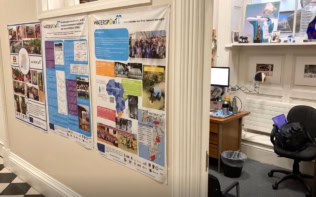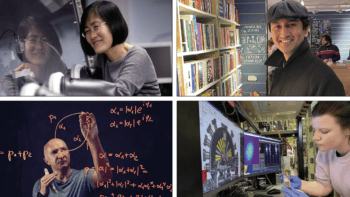
“Ever heard a child say ‘Yeah, I get it!’? Well, if you do, they’re lying. They’re only saying those words because you’re boring them and they don’t want to listen any more.”
That’s not me telling you – it’s Fran Scott, a BBC science presenter who has spent the last nine years involved in informal children’s science education, most recently working for Children’s BBC and BBC Learning.
Scott, who writes about her experiences in the March issue of Physics World magazine, finds “nothing more frustrating that the lazy communication of science”. And so, to help put things right, she has been involved in “many arms of science outreach”, including scientifically reviewing and advising on science books and also consulting on – and presenting – children’s science on the BBC.
In the article, Scott underlines how hard it is to really engage with children and distils her many years of experience into four golden rules. She advises you to remember them with the acronym “REAP”, claiming that they do reap great results. “I like rules,” says Scott. “They make you put the seemingly obvious into practice.”
Listed below are her four rules and a little bit about what they all mean, but to read the full article follow the links below.
Rule 1: Research – know the whole concept
Only by knowing as much as you can about the physics you want to explain can you interpret it and summarize it as a whole.
Rule 2: Extraction – select the key ideas
Boil down your knowledge to four to six bullet-pointed aspects, ideas or stories that together explain the whole principle you’ve researched.
Rule 3: Assimilate – boil down the ideas to one “learning outcome”
Collate your messages form rule 2 into one main idea that highlights the basis of all these principles.
Rule 4: Present – make your learning outcome engaging
Make your presentation entertaining, know what your audience knows, and do not use jargon unless you first explain it.
As Scott explains, if the rules seem obvious, it’s because they are. But they’re not so obvious that everyone adheres to them.
Members of the Institute of Physics (IOP) can read Scott’s full article in the March issue of Physics World magazine.
But remember that to get Physics World each month, simply join the IOP via this link.



